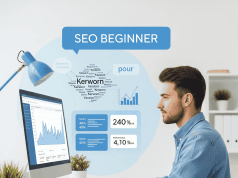In today’s fast-paced digital landscape, marketers are harnessing the power of artificial intelligence (AI) to streamline their campaigns, enhance customer experiences, and improve overall efficiency. As AI continues to evolve, businesses are discovering innovative solutions to stay competitive. Let’s explore the cutting-edge AI-powered campaign management tools reshaping the marketing landscape and how they can benefit your business.
Understanding AI in Marketing
AI in marketing refers to the use of intelligent algorithms and data analytics to carry out tasks such as customer segmentation, predictive analytics, and personalized communication. By automating repetitive tasks and providing real-time insights, AI allows marketers to focus on strategy and creativity.
Key Benefits of AI-Powered Marketing Tools:
- Enhanced Targeting and Personalization: AI analyzes consumer behavior, preferences, and trends, enabling marketers to deliver highly personalized content and offers.
- Improved Decision Making: These tools provide data-driven insights, helping marketers make informed decisions quickly and effectively.
- Resource Efficiency: Automation of routine tasks means teams can allocate time and resources more strategically.
- Predictive Analytics: AI tools can forecast future trends, giving businesses a head start in planning and strategy formulation.
Top AI-Powered Marketing Management Tools
1. HubSpot
HubSpot offers a comprehensive set of marketing tools, integrating AI capabilities for enhanced user experience. Its CRM system leverages AI for lead scoring, optimizing email marketing, and even predictive content generation. With HubSpot, businesses can automate their marketing campaigns, track performance in real-time, and modify strategies based on insights provided by the platform.
2. Marketo Engage
Marketo is another powerful tool that utilizes AI to optimize customer engagement. Its features include in-depth analytics, automated workflows, and personalized marketing strategies. Marketo’s AI can determine the best time to engage each customer and predict their behaviors, which allows businesses to promote products effectively.
3. Pardot by Salesforce
Pardot focuses on B2B marketing automation, employing AI to streamline lead nurturing processes. With its extensive analytics and reporting capabilities, marketers can evaluate campaign performance and analyze customer journeys more effectively. Pardot’s integration with Salesforce ensures seamless synchronization between sales and marketing efforts.
4. Adobe Sensei
Adobe Sensei employs deep learning and machine learning algorithms to enhance marketing efforts across the Adobe Experience Cloud. This tool helps in analyzing customer interactions and optimizing content recommendations, enabling marketers to deliver personalized experiences at scale.
5. Mailchimp
Known primarily for its email marketing capabilities, Mailchimp incorporates AI features that improve targeting and engagement rates. Its automation tools provide personalized recommendations based on user behavior, allowing businesses to reach the right audience at the right time.
6. Zoho Campaigns
Zoho Campaigns integrates AI for predictive analytics and customer segmentation, making it easier to tailor campaigns. Its support for multichannel marketing helps businesses reach their audience across various platforms, enhancing overall effectiveness.
The Future of AI in Marketing
As AI technology continues to progress, the marketing landscape will see even more innovative tools and strategies emerge. Here are a few trends to watch for:
- Hyper-Personalization: Future AI tools will focus on creating even more personalized content based on nuanced customer insights.
- Voice and Visual Search: With the rise of voice-activated devices and visual search, future campaign management tools will incorporate AI that enables marketers to optimize for new forms of customer interaction.
- Integration with Augmented Reality (AR): As AR technology evolves, we can expect AI tools to facilitate immersive customer experiences, allowing brands to engage with consumers in entirely new ways.
- Ethical AI Practices: As concerns about data privacy grow, future marketing tools will need to adapt to meet ethical standards while still leveraging data for personalized marketing.
Conclusion
The integration of AI in marketing is not merely a trend; it represents the future of how businesses engage and communicate with their audiences. By leveraging AI-powered campaign management tools, marketers can achieve unprecedented levels of efficiency, personalization, and effectiveness. As you explore these technologies, consider which tools align best with your goals and audience, and prepare to elevate your marketing strategy to the next level. Embracing AI will not only streamline your operations but also set your brand up for sustained success in an increasingly digital world.









